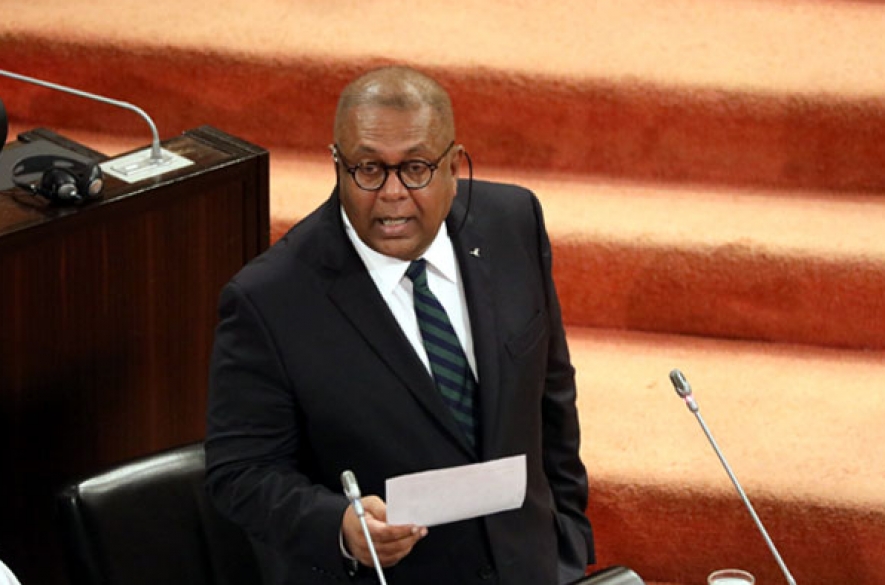“Upto Rs 15 million from services rendered to persons outside Sri Lanka is tax exempted. Further, pensioners have been totally exempted from taxes, but if their interest is over Rs. 1.5 million per year (over Rs. 125,000 per month) it will be subject to a withholding tax.
“If a pensioner is to gain an income of Rs. 1.5 million per year, he should have an investment of Rs.20 million. Hence, this tax will not affect 95% of the pensioners, Samaraweera said.
He said during the past few days many distorted and incorrect news was disseminated by the media and some MPs with regard to the Inland Revenue Act. The Minister yesterday presented ten gazettes under the Commodity Levy Act for house approval.
The minister noted that last year on October 24, the government had the new Inland Revenue Act passed in parliament and based on a proposal made in the house, the implementation of the new taxation was postponed by a year and came into effect from April 1, 2018.
“The current direct and indirect tax disparity is absolutely unfavourable. Today direct taxes are paid by a fraction of the population at 18%.
“This can be considered the lowest in the world. In Malaysia, 72% of taxes are charged through direct taxes and in India its 57%, Bangladesh 33%, but we in Sri Lanka is still at 18%. However, 88% of the taxes are charged through indirect taxes.
“The problem with indirect taxes is that even the millionaire pays the same taxes as the poor man in terms of purchasing essential commodities. I do agree that the VAT is too high and it needs to be reduced. In order to reduce that we should reduce the tax disparity to at least 40% to 60%. Then accordingly we can gradually reduce VAT and other taxes providing relief to the people,” Minister Samaraweera said.
“This is why the brought in this new Revenue Act to introduce a simpler taxation structure, he said. Under this new system, he explained that those who earn Rs. 1.2 million or lesser per year (Rs. 100,000 or lesser per month) will not be taxed. Similarly, they have made the taxation system simpler preventing politicians from granting tax relief to their relatives and friends as they please to suit their whims and fancy.
“We have taken away the power to decide on the tax from the minister and incorporated it into an Act in a methodical manner. However, many have expressed warped and false claims regarding the taxation system.
“Rumours are spread that capital gains tax is at 10% on the sale price, but this is not true. This tax is applicable on the gain derived from the sale of an extra land or house and the sale price is seen as a cost,” he said.
He also refuted claims that the sale of a vehicle subject to capital gains tax, adding that “this is again an absolute lie and capital gains tax is applicable only on the sale of lands, buildings and securities.”
The government’s tax policies have focussed on some key principals and objectives, increasing the share of government revenue which had declined to 11.6% of GDP by 2014. “This would enable us to better meet our debt repayments without compromising government expenditure on health and education.
The changes are aimed to achieve revenue increase by increasing the share of direct taxes from 18 to 40% and create a more progressive tax structure, broaden the tax base to bring in the informal economy into the formal sector.
This will create a level playing field by ensuring that everyone complies and shares the burden of taxes, reduce discretion in tax policy and shift to a simple transparent rules based structure and in future the minister would not be able to change the rules and regulations according to the whims and fancies of those in power,” Samaraweera noted, adding that this was required to minimize potential corruption and reduce tax leakages due to ad-hoc tax exemptions.



















